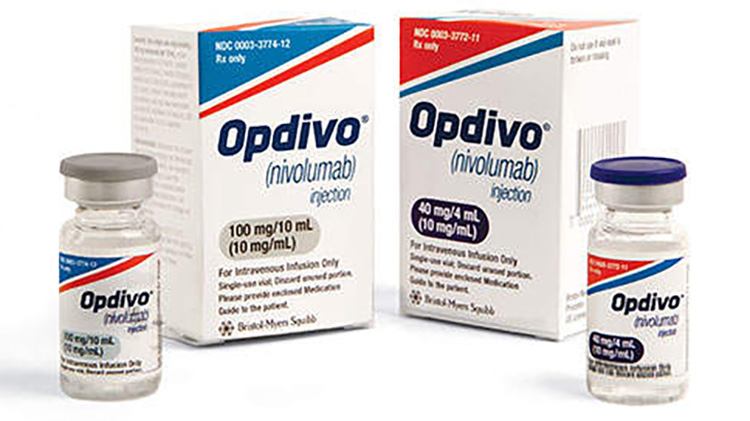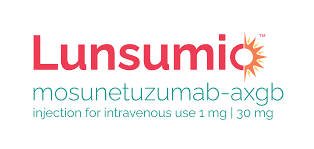Opdivo (Nivolumab) vs Lunsumio (mosunetuzumab-axgb)
Opdivo (Nivolumab) vs Lunsumio (mosunetuzumab-axgb)
Opdivo (nivolumab) is a PD-1 blocking antibody designed to harness the body’s immune system to help restore anti-tumor immune response, and is widely used in the treatment of various types of cancer, including melanoma, lung cancer, and kidney cancer. Lunsumio (mosunetuzumab-axgb), on the other hand, is a bispecific antibody targeting both CD20 on B cells and CD3 on T cells, leading to the engagement and activation of T cells to eliminate B cells, and is specifically indicated for the treatment of certain types of B-cell non-Hodgkin lymphoma. When deciding between these two medications, it is crucial to consider the specific type of cancer being treated, the patient's overall health, previous treatments, and the safety and efficacy profile of each medication as they have different mechanisms of action and are approved for different indications.
Difference between Opdivo and Lunsumio
| Metric | Opdivo (Nivolumab) | Lunsumio (mosunetuzumab-axgb) |
|---|---|---|
| Generic name | Nivolumab | Mosunetuzumab-axgb |
| Indications | Various types of cancers including melanoma, lung cancer, kidney cancer, bladder cancer, head and neck cancers, and others. | Follicular lymphoma |
| Mechanism of action | PD-1 inhibitor that enhances T-cell function to help the immune system attack cancer cells. | Bispecific CD20-directed CD3 T-cell engager that activates the body's immune system to target and eliminate CD20-expressing B-cells. |
| Brand names | Opdivo | Lunsumio |
| Administrative route | Intravenous infusion | Intravenous infusion |
| Side effects | Fatigue, rash, musculoskeletal pain, pruritus, diarrhea, nausea, and others. | Cytokine release syndrome, infections, fatigue, diarrhea, and others. |
| Contraindications | Hypersensitivity to nivolumab or any of its excipients. | Hypersensitivity to mosunetuzumab-axgb or any of its excipients. |
| Drug class | Immune checkpoint inhibitor | Bispecific antibody |
| Manufacturer | Bristol Myers Squibb | Genentech, Inc. |
Efficacy
Efficacy of Opdivo (Nivolumab) in Lymphoma
Opdivo, also known by its generic name Nivolumab, is an immune checkpoint inhibitor specifically targeting the PD-1 receptor on T cells. It has shown efficacy in treating several types of cancer, including lymphoma. In Hodgkin lymphoma, particularly in cases that are relapsed or refractory after autologous stem cell transplant and post-transplantation brentuximab vedotin, Nivolumab has demonstrated significant response rates. Clinical trials have reported that a substantial proportion of patients achieve partial or complete responses, leading to its approval by regulatory agencies for this indication. The efficacy of Nivolumab in non-Hodgkin lymphoma, including its subtypes, is also an area of active research, with some promising results in early-phase trials.
Efficacy of Lunsumio (Mosunetuzumab-axgb) in Lymphoma
Lunsumio, with the generic name Mosunetuzumab-axgb, is a bispecific T-cell engager antibody targeting both CD20 on B cells and CD3 on T cells. This dual targeting mechanism facilitates the activation and redirection of T cells to engage and eliminate B cells, which is particularly relevant in B-cell lymphomas. In clinical trials, Mosunetuzumab-axgb has shown efficacy in patients with relapsed or refractory non-Hodgkin lymphoma, including those who have failed previous treatments such as CAR T-cell therapies. The response rates in these studies have been encouraging, with a meaningful number of patients achieving complete responses, suggesting that Lunsumio may offer a new therapeutic option for this challenging patient population.
Comparison and Context in Lymphoma Treatment
Both Opdivo and Lunsumio represent advances in the treatment of lymphoma through different mechanisms of action. Opdivo, as an immune checkpoint inhibitor, releases the brakes on the immune system, allowing T cells to attack cancer cells more effectively. In contrast, Lunsumio directly recruits and activates T cells against B cells via its bispecific antibody structure. The efficacy of these drugs in lymphoma highlights the importance of the immune system in combating hematologic malignancies and the potential for immunotherapy to improve outcomes in patients with these diseases.
Considerations and Ongoing Research
While the efficacy of both Opdivo and Lunsumio in lymphoma is supported by clinical trial data, ongoing research continues to refine their use, including identifying patient populations that may benefit most, understanding long-term outcomes, and managing associated toxicities. The landscape of lymphoma treatment is evolving rapidly, and these medicines are at the forefront of new therapeutic options that offer hope to patients with previously limited treatment choices. As with all medical treatments, the use of Opdivo and Lunsumio should be guided by a healthcare professional, taking into account the individual patient's health status and the specifics of their disease.
Regulatory Agency Approvals
Opdivo
-
European Medical Agency (EMA), European Union

-
Food and Drug Administration (FDA), USA

-
Health Canada

-
Pharmaceuticals and Medical Devices Agency (PMDA), Japan

-
Therapeutic Goods Administration (TGA), Australia

-
Medsafe (NZ)

Lunsumio
-
European Medical Agency (EMA), European Union

-
Food and Drug Administration (FDA), USA

Access Opdivo or Lunsumio today
If Opdivo or Lunsumio are not approved or available in your country (e.g. due to supply issues), you can access them via Everyone.org.
How it works

Make an enquiry
Choose the medicine you want to buy, answer a couple of questions, and upload your prescription to speed things up. We’ll get back to you within 24 hours.


Make an enquiry
Choose the medicine you want to buy, answer a couple of questions, and upload your prescription to speed things up. We’ll get back to you within 24 hours.


Breeze through the paperwork
We'll guide you through the required documents for importing unapproved medicine, ensuring you have all the necessary information.


Get a personalized quote
We’ll prepare a quote for you, including medicine costs and any shipping, administrative, or import fees that may apply.


Receive your medicine
Accept the quote and we’ll handle the rest - sourcing and safely delivering your medicine.

Some text on this page has been automatically generated. Speak to your physician before you start a new treatment or medication.
Let's talk
If you have any questions, call us or send us a message through WhatsApp or email:
Contact us




